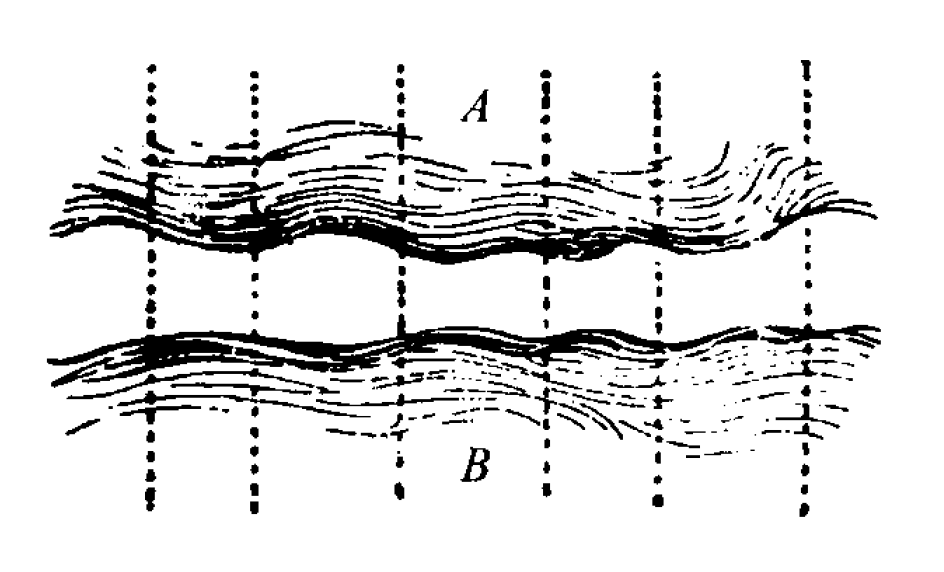| [Visitor (112.0.*.*)]answers [Chinese ] | Time :2023-12-03 |  Saussure's linguistic meaning Saussure's linguistic meaning
Language is the thought organized in the substance of sound
To understand that language can only be a system of pure values, it is enough to consider two elements that work in language: ideas and sounds.
From a psychological point of view, the mind is detached from the expression of words, and is just a mass of shapeless, vague and unclear things. Philosophers and linguists often agree that without the help of symbols, we cannot distinguish between two ideas clearly and solidly. Thought itself is like a nebula, in which there are no boundaries that are necessarily demarcated. There is no such thing as a predetermined idea. Before the advent of language, everything was ambiguous.
Is the sound itself a pre-defined entity compared to this floating kingdom? The substance of sound is not more fixed or more solid, it is not a model, the thought has to match its form, but a malleable substance, which itself can be divided into different parts to provide the signifier that the thought needs. Thus, we can conceive of the whole linguistic fact, i.e., language, as a series of connected small distinctions, drawn simultaneously on the infinite plane of ambiguous ideas (A) and the equally uncertain plane of sound (B), as shown in the diagram on the right:
Image
The unique role of language in thought is not a material means of sound created for the expression of ideas, but as a medium of thought and sound, so that their union necessarily leads to the drawing of a clear line between the units. Thought is by its very nature chaotic, and it has to be clarified when it is decomposed. Therefore, there is neither the materialization of thought nor the spiritualization of sound, but the rather mysterious fact of "thought-sound" Implicit in the distinction is that language formulates its unit when it is formed between these two amorphous and unconventional things.Let's imagine that the air and the surface of the water come into contact: if the pressure of the atmosphere changes, the surface of the water breaks down into a series of small distinctions, i.e., waves, which rise and fall to remind one of the union of thought and sound matter, or mating...
We can call language the realm of subsections in the sense set out on page 17: every linguistic element is a small member, an articulus, in which an idea is fixed in a sound, and a sound becomes a symbol of an idea.
Language can also be compared to a piece of paper: the thought is the positive, and the sound is the negative. We can't cut the front and not the tail, and in the same way, in language, we can't take the sound out of the mind, and we can't take the thought out of the sound. This can only be done through an abstract work, which results in pure psychology or pure phonology.
So linguistics works on the periphery where these two types of elements come together, and this combination produces forme, not substance.
These points can give us a better understanding of the arbitrariness of the symbols mentioned on page 94 above. Not only are the two domains connected by linguistic facts vague and amorphous, but the choice of what syllable represents what notion is completely arbitrary. Otherwise, the concept of value would lose some of its character, because it would contain an element imposed from the outside. But in fact, value is still entirely relative, and therefore the connection between ideas and sounds is fundamentally arbitrary.
The arbitrariness of symbols, in turn, allows us to better understand why social facts are capable of creating a linguistic system on their own. Value exists only by custom and general consent, so in order to establish value, there must be a collective, and the individual cannot determine any value.
The values thus prescribed also suggest that it would be a great illusion to see an element simply as a combination of a certain sound and a certain concept. Such a provision would detach it from the system to which it belongs, as if starting from the elements and adding them together would constitute a system. In fact, on the contrary, we must start from the whole that is related to each other, analyze it, and arrive at the elements it contains.
In order to develop this argument, we will examine them separately from the point of view of the signifier or concept (§ 2), the point of view of the signifier (§ 3), and the point of view of the sign as a whole (§ 4).
Since we cannot directly grasp the specific entity or unit of language, we will use words as material for research. Although words do not exactly correspond to the definition of linguistic units (see page 143), they at least give us an approximate idea, and have the advantage of being concrete. Thus, we will treat words as specimens equal to the actual elements of synchronic systems, and the principles derived from words are equally valid for entities in general. |
|
